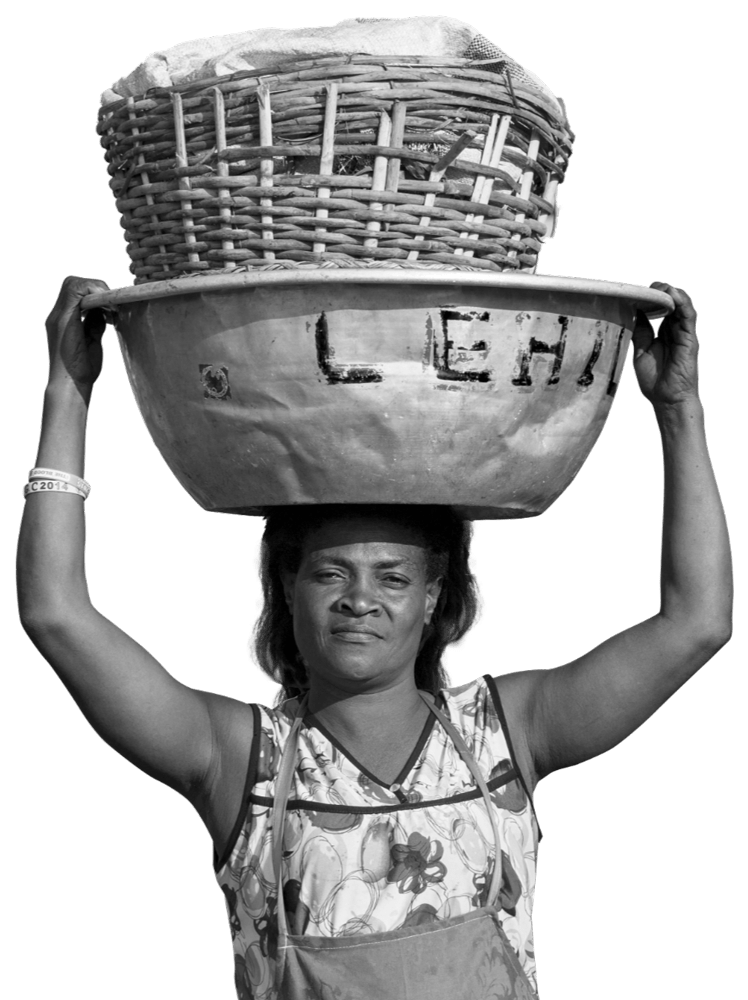Founding Policy Resolutions
Organisational Policy on Class and Gender
This international congress, NOTING
- That street vending is increasing all over the world as a result of job losses and lack of employment in the formal economy, and that this trend is irreversible;
- That street vendors, market vendors and hawkers now represent a third of the urban informal workforce around the world;
- That the majority of street vendors in most countries, especially the poorest, are women;
- That vendors seek the right to vend without harassment and to have regular selling spaces in places that customers frequent, storage and child care facilities, and basic infrastructure such as water, shelter and toilets;
- That vendors, like all urban informal workers, are concerned with social services (health, education and child-care), law and order (protection and the ability to work steadily without disruption), and the establishment of a negotiation framework and local appeals mechanism;
- That there is a need for strong membership-based representative organizations of street and market vendors and hawkers, to struggle consistently for and secure these rights and facilities;
- That there are, however, class differences and gender differences between vendors, which results in some being much more economically secure than others.
Hereby RESOLVES
- That StreetNet International will take over the work started by the StreetNet Association to build strong organization;
- That StreetNet will remain committed to focus primarily on the needs of the poorest street and market vendors and hawkers, including the particular needs of women vendors;
- That StreetNet will remain committed to empowering women vendors and assisting them to overcome the marginalizing effects of gender discrimination;
- That StreetNet will remain committed to building strong leadership among the poorest and most disadvantaged vendors, particularly women;
- That StreetNet will continue to work in alliance with the international trade union movement and its affiliated national organisations, the international co-operative movement, credit organisations and other organizations which are promoting the collective self-empowerment of the poorest workers in the formal and informal economy through democratic accountable membership-controlled organizations.
PROPOSED: KATINIG, Philippines
SECONDED: Informal Business Forum, Johannesburg, South Africa
Sustainability and Financial Self-sufficiency Policy
This international congress, NOTING
- That street vending is increasing all over the world as a result of job losses and lack of employment in the formal economy, and that this trend is irreversible;
- That street vendors, market vendors and hawkers now represent a third of the urban informal workforce around the world;
- That in many places, organizations of street vendors emerge in times of crisis but gradually fade away – when there is a recurrence of crisis, the organisation is often no longer in existence;
- That there is a need for strong membership-based representative organizations of street and market vendors and hawkers, to struggle consistently for and secure their rights and facilities for economic activity;
- That strong organization needs to be sustainable and financially self-sufficient in the long term.
Hereby RESOLVES
- That StreetNet International aims and seeks to become financially self-sufficient, for the sake of accountability and commitment of member organisations, who will be required to pay affiliation fees.
- Other means of fundraising will be identified and pursued, including:
- international trade between street vendors’ projects in different countries;
- savings and credit initiatives;
- fundraising events (such as cultural events, etc.)
- StreetNet International should practice sound financial management and control.
- StreetNet will promote, develop and strengthen organisations of street vendors which can sustain the cause of street vendors and their right to earn a livelihood.
PROPOSED: Informal Business Forum, Johannesburg, South Africa
SECONDED: Ghana TUC
Political Party Policy
This international congress, NOTING
- That street vendors, market vendors and hawkers probably now represent a third of the urban informal workforce around the world;
- That vendors seek the right to vend without harassment and to have regular selling spaces in places that customers frequent, storage and child care facilities, and basic infrastructure such as water, shelter and toilets;
- That it is common for political parties to promise to provide for the needs of vendors in order to secure their votes, but that such promises are not always kept;
- That some street and market vendors’ organizations are controlled by political parties and do not enjoy the independence or capacity to determine their own policies and practices;
- That vendors’ organizations which are affiliated to political parties are particularly vulnerable when their political parties fail to win in elections.
Hereby RESOLVES
- That StreetNet International will retain a position of neutrality in relation to all political parties in all the countries where StreetNet has member organizations;
- That StreetNet member organizations will have the right to each decide on their own policies regarding their relationship to political parties, but those who have chosen party-political affiliation will not impose their choice on StreetNet or other member organizations, including member organizations from the same country;
- That StreetNet will support policies which are favourable to street and market vendors and hawkers only on the basis of the issues;
- That StreetNet will equally pressurize and lobby all political parties and governments in all countries to support the policies on the regulation and development of services and facilities for street and market vendors and hawkers which StreetNet is promoting.
PROPOSED: AZIEA, Zambia
SECONDED: KATINIG, Phillipines



